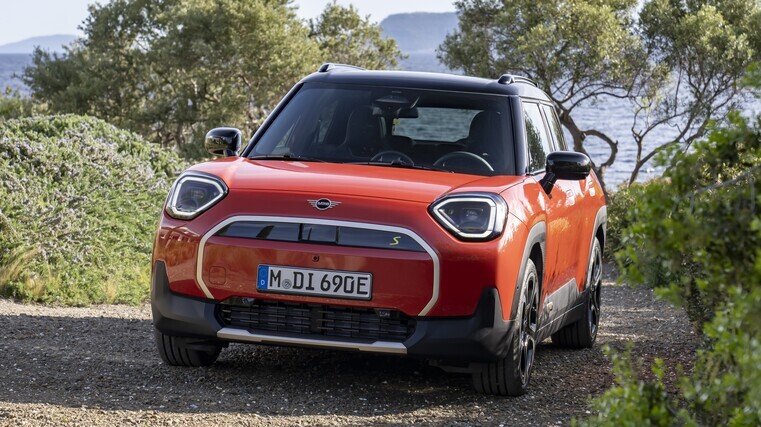Prices set for electric Minis

Mini New Zealand has confirmed pricing for the marque’s all-new Aceman, which is set to go on sale in New Zealand in the final quarter of this year.
The five-door crossover is the first Mini model to be available exclusively with an electric powertrain and will be available in E (electric) and SE (sports electric) variants.
The recommended retail price for the E model will be $63,990, including GST but excluding on-road and delivery costs, while the SE comes in at $69,990.
Alexander Brockhoff, general manager of Mini Australia and New Zealand, says the Aceman is a “fresh and innovative take on the iconic Mini design”.
“The Aceman provides our customers with a greater choice of electrified, premium compact vehicles that are perfect for urban living and beyond,” he adds.
“Its introduction is a testament to our unwavering commitment in electrifying the brand and our vision of a sustainable future.”
The Aceman E model boasts a 38.5kWh net battery capacity, allowing it to deliver 135kW of power, 290Nm of torque and a driving range of up to 310km.
As for the SE version, the battery pack has a 49.2kWh net capacity producing 160kW of power, 330Nm of torque, and a range of up to 406km.
Both variants come equipped with DC fast charging capabilities. The E model is compatible with a 75kW maximum charging rate and requires just 28 minutes for a 10-80 per cent charge.
The maximum charging rate is increased to 95kW for the SE and it achieves the same level of charge in 31 minutes.
Mini is leather-free in its new generation vehicles and offers a cloth/Vescin combination for the E model or Vescin vegan leather upholstery for the SE.
There is cabin space for five passengers and the 60:40 rear seats can be folded to extend the luggage compartment from 300 litres to 1,005 litres.
Further boosting its sustainability credentials are light alloy wheels manufactured using up to 70 per cent recycled aluminium.
In combination with renewable electricity, this process reduces carbon dioxide emissions by up to 80 per cent compared with conventional production methods.
Meanwhile, the vehicle’s floor and floor mats are made from at least 90 per cent recycled polyester.





